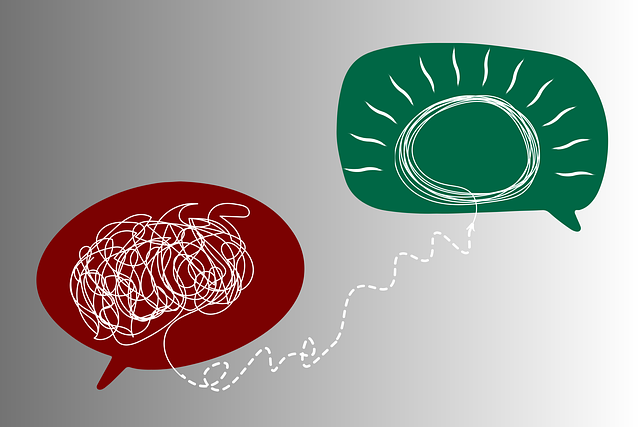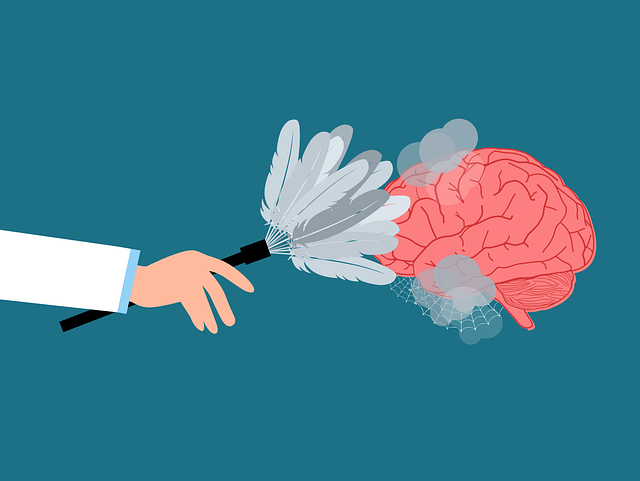Castle Rock Exposure and Response Prevention (ERP) Therapy is an effective group facilitation technique for overcoming fear and anxiety through gradual exposure in safe, controlled environments. Group settings maximize peer support, incorporate mindfulness meditation, and enhance crisis intervention skills, leading to improved self-esteem and collective resilience. A key to success is creating a safe, supportive environment with structured activities like role-playing and open communication, fostering emotional exploration and expression. Regular risk assessments and diverse cultural sensitivity ensure a respectful, inclusive space for healing and personal growth, aligned with Coping Skills Development objectives. Success is measured through various assessment tools, reflecting tangible improvements in emotional well-being and functional abilities.
Mental wellness group facilitation is a powerful tool for fostering community and healing. This article delves into the foundational techniques of Castle Rock Exposure and Response Prevention (ERP) Therapy, offering a framework for effective group sessions. We explore key strategies to create a safe, supportive environment, providing interventions tailored to common mental health challenges. By understanding ERP’s principles, facilitators can guide individuals towards managing their conditions and improving overall well-being. Measurements of success highlight the impact of these techniques, showcasing improved outcomes in group settings.
- Understanding Castle Rock Exposure and Response Prevention (ERP) Therapy: A Foundation for Group Facilitation
- Key Techniques to Foster a Supportive Group Environment
- Strategic Interventions for Addressing Common Mental Health Challenges
- Measuring Success: Evaluating the Impact of Group Facilitation Techniques
Understanding Castle Rock Exposure and Response Prevention (ERP) Therapy: A Foundation for Group Facilitation

Castle Rock Exposure and Response Prevention (ERP) Therapy is a highly effective evidence-based approach that serves as a cornerstone for group facilitation techniques. This therapeutic method focuses on helping individuals confront and manage their fears and anxiety by gradually exposing them to distressing situations or memories in a safe and controlled environment. Through this process, participants learn to replace maladaptive responses with healthier coping mechanisms.
Group settings offer a unique opportunity to apply ERP Therapy, as they allow for peer support and shared experiences. Facilitators can guide sessions by encouraging members to share their challenges, providing strategies for exposure exercises tailored to individual needs, and fostering an environment that promotes mindfulness meditation. Crisis intervention guidance and self-esteem improvement are additional benefits, as participants gain insights into their triggers and develop resilience in navigating difficult emotions collectively.
Key Techniques to Foster a Supportive Group Environment

Creating a safe and supportive group environment is pivotal for effective mental wellness facilitation. Key techniques include active listening, ensuring confidentiality, and promoting open communication. Facilitators should encourage members to share their experiences without fear of judgment, fostering a sense of belonging. This climate of acceptance allows individuals to explore and express their emotions, a crucial aspect of Castle Rock Exposure and Response Prevention Therapy (ERPT). By facilitating honest discussions, facilitators enable members to build on each other’s insights, enhancing the therapeutic benefits.
Additionally, incorporating structured activities like role-playing scenarios or group exercises can aid in Crisis Intervention Guidance and Mood Management. These activities help participants develop coping skills, enabling them to navigate challenges more effectively. Through these interactive methods, the group dynamic strengthens, offering a supportive network that promotes emotional well-being and personal growth. The goal is to create an inclusive space where every member feels valued, respected, and empowered to share their unique perspectives, mirroring the objectives of Coping Skills Development.
Strategic Interventions for Addressing Common Mental Health Challenges

Mental wellness group facilitation plays a pivotal role in addressing common mental health challenges. One powerful technique gaining traction is Castle Rock Exposure and Response Prevention (ERP) Therapy, which targets anxiety disorders with a focus on gradual exposure to feared situations or objects while preventing avoidance behaviors. This evidence-based approach empowers individuals to confront their anxieties head-on, fostering resilience and promoting positive thinking.
Facilitators of mental wellness groups can also incorporate stress management workshops within their programs. By teaching participants effective coping strategies and mindfulness techniques, these workshops equip them with valuable tools to navigate life’s stressors. Regular risk assessments for mental health professionals are essential to ensure the safety and well-being of both facilitators and group members, fostering a supportive environment conducive to healing and growth.
Measuring Success: Evaluating the Impact of Group Facilitation Techniques

Measuring success in mental wellness group facilitation is a multifaceted process that goes beyond mere attendance or engagement. Effective techniques, like Castle Rock Exposure and Response Prevention (ERP) Therapy, aim to produce tangible improvements in participants’ emotional well-being and functional abilities. Facilitators should assess changes in symptoms related to anxiety, depression, or other mental health challenges through standardized questionnaires or clinical interviews before and after the group sessions. Additionally, tracking self-reported progress and qualitative feedback from members offers valuable insights into the impact of facilitation.
Cultural sensitivity in mental healthcare practice is paramount when evaluating these techniques. Recognizing individual cultural backgrounds and incorporating them into the facilitation process ensures that interventions are not only effective but also respectful and inclusive. As the Mental Wellness Podcast Series Production highlights, diverse perspectives enrich group dynamics and enhance the overall therapeutic experience. Mind Over Matter principles, which emphasize the power of thoughts and beliefs in shaping emotional responses, can be powerful tools for evaluation, as they encourage participants to reflect on their progress and gain a deeper understanding of their mental wellness journey.
Castle Rock Exposure and Response Prevention (ERP) Therapy provides a robust foundation for group facilitation, empowering facilitators to create supportive environments that address common mental health challenges. By employing key techniques discussed in this article, professionals can foster meaningful connections, enhance coping skills, and measure success through comprehensive evaluation methods. Integrating these strategies equips facilitators to make a significant impact on participants’ mental wellness journeys.














